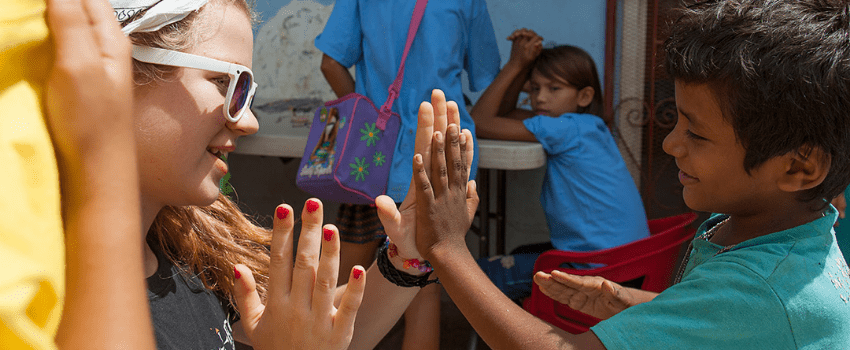Conventional wisdom on wealth has been expressed throughout the ages.
Ancient Greek philosopher Democritus wrote, “Happiness resides not in possessions, and not in gold, but rather dwells in the soul. By desiring little, a poor man makes himself rich.”
Founding Father, Benjamin Franklin stated, “He does not possess wealth that allows it to possess him. Who is rich? He that rejoices in his portion.”
Nineteenth century Lebanese poet Kahlil Gibran penned, “Money is like love; it kills slowly and painfully the one who withholds it, and enlivens the other who turns it on his fellow man.”
And contemporary songwriters, Lennon and McCartney summed it up this way, “I don’t care too much for money; money can’t buy me love”.
Of course, God is the ultimate expert and the Bible has a lot to say about our relationship to money and wealth:
“Yet true godliness with contentment is itself great wealth. After all, we brought nothing with us when we came into the world, and we can’t take anything with us when we leave. So if we have enough food and clothing, let us be content. But people who long to be rich fall into temptation and are trapped by many foolish and harmful desires that plunge them into ruin and destruction. For the love of money is the root of all kinds of evil. And some people, craving money, have wandered from the true faith and pierced themselves with many sorrows.”
— 1 Timothy 6:6-10
The apostle Paul wrote to Timothy that “godliness with contentment is great gain” but most of us wrestle with that perspective when everything in our culture tells us we need more. Martin Luther King Jr. once said, “The means by which we live have outdistanced the ends for which we live.” Why is contentment so hard and why do we seem to always want more? When we get in the habit of satisfying all of our wants in addition to our needs, we condition our brains to seek ultimate self-gratification. As this pattern is perpetuated, the novelty of “new”quickly wears off and we once again find ourselves dissatisfied with what we have; the majority of our resources end up spent on our own desires instead of blessing others.
Most of us would say we agree with the Bible’s financial principles, and we probably would also like to be more generous! However, how we live often isn’t in line with what God teaches through His Word. We want overflow, but our behavior is not setting us up to achieve it. If we ask the question, “Why should I give this away?” the answer is intuitively against generosity; the better question is “Why shouldn’t I give this away?” It’s a matter of perspective and the trick is to stop thinking of it as your money. Everything we have is God’s, and for some God has given much more than what is necessary for survival.
“Command those who are rich in this present world not to be arrogant nor to put their hope in wealth, which is so uncertain, but to put their hope in God, who richly provides us with everything for our enjoyment. Command them to do good, to be rich in good deeds, and to be generous and willing to share. In this way they will lay up treasure for themselves as a firm foundation for the coming age, so that they may take hold of the life that is truly life.”
— 1 Timothy 6:17-19
A life that is “truly life” is not about getting more, but rather giving more—living from overflow. So, how do we get a life like that? How do we think about money from a Kingdom perspective?
Three ways to live financially free
1. Pursue contentment daily.
Shift your paradigm, continually; each day make the choice to pursue contentment. Does acquiring more money offer more of a sense of control in your life? Has control become an idol to your self-sufficiency? Money is meant to be our servant not our master. In Matt. 6:24, Jesus warns, “No one can serve two masters. For you will hate one and love the other; you will be devoted to one and despise the other. You cannot serve both God and money. Your goal shouldn’t be financial independence but financial freedom. Independence doesn’t need God; freedom is letting go of our sense of dependence on ourselves; we can be liberated from being controlled by our finances and find security in our reliance on God to supply our needs.
2. Live on less than you make.
This can be a challenging thought! One way to approach this is to ask yourself (and God), What is the right amount to give? Christian author C.S. Lewis gave some practical advice when he wrote, “…The only safe rule is to give more than we can spare. If our expenditures on luxuries and amusements are the same as our neighbor who earns the same as us, we probably aren’t giving enough. If our charities do not hamper or pinch, they are too small. There ought to be things that we should like to do and cannot because our charitable expenditure excludes them.” The message is that we should give sacrificially, not out of sufficiency. Ultimately, Paul gets to the crux of it in 2 Cor. 9:7, “You must each decide in your heart how much to give. And don’t give reluctantly or in response to pressure. For God loves a person who gives cheerfully.”
3. Pay it forward.
The Bible assures that there will be riches that await you in Heaven if you set your heart on God’s Kingdom rather than your temporary earthly home. Jesus was clear when He said “Do not store up for yourselves treasures on earth, where moths and vermin destroy, and where thieves break in and steal. But store up for yourselves treasures in heaven…For where your treasure is, there your heart will be also.” (Matthew 6:19-21) The treasures that await the child of God will far outweigh any inconvenience or sacrifice you might experience. You can give generously, knowing that God is keeping account, and His reward will be abundantly gracious; as promised in Romans 8:17 and Colossians 3:23, “And if we are children, then we are heirs: heirs of God and co-heirs with Christ… and we will receive an inheritance from the Lord as a reward.”
God wants to abundantly give us all we need for our enjoyment, but that isn’t all. He gives generously to us so that we can share it with others; as we pour out, He continues to pour in. This is living in the overflow and it is a part of our sanctification. We become more and more like our Heavenly Father when we experience the joy of giving and blessing others with what He has given us.
Read Cultivating Generosity Part 1: Living From Overflow
Read Cultivating Generosity Part 3: The Privilege of Sharing
Read Cultivating Generosity Part 4: Crazy Generosity









